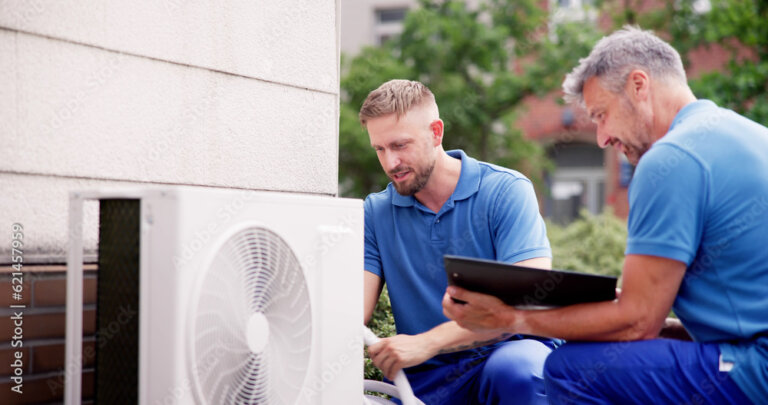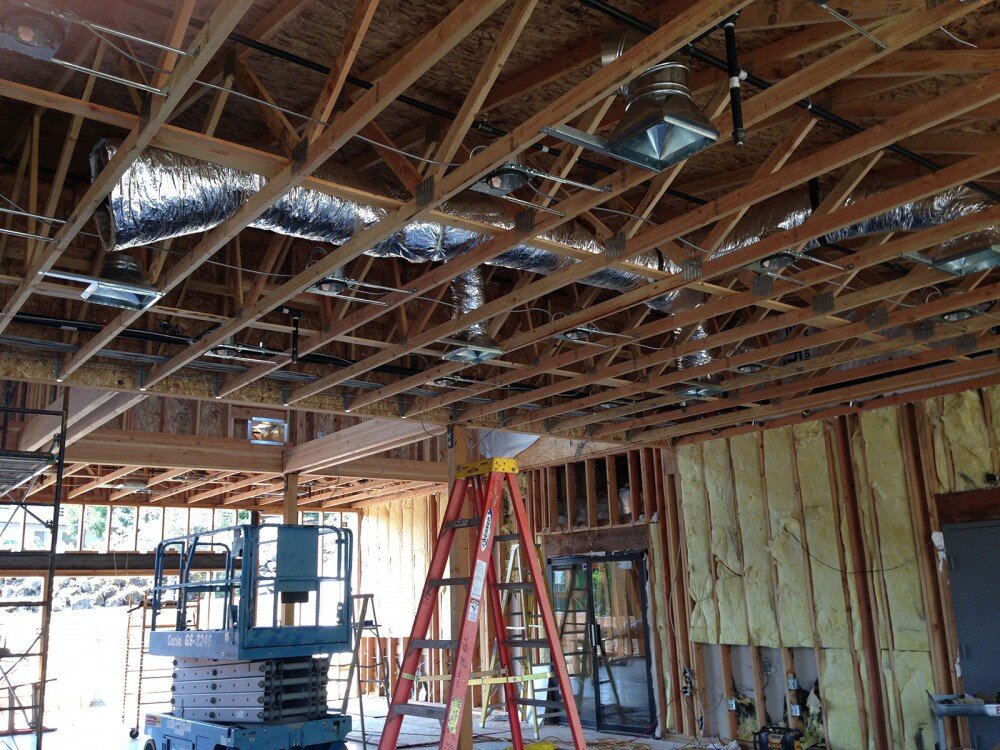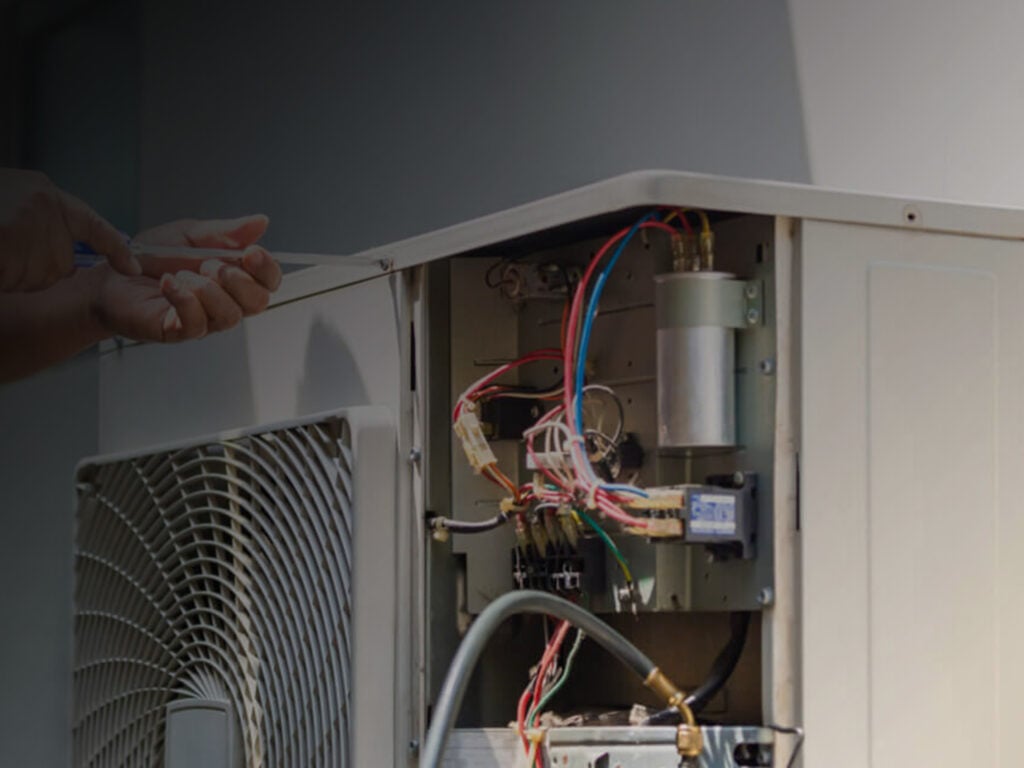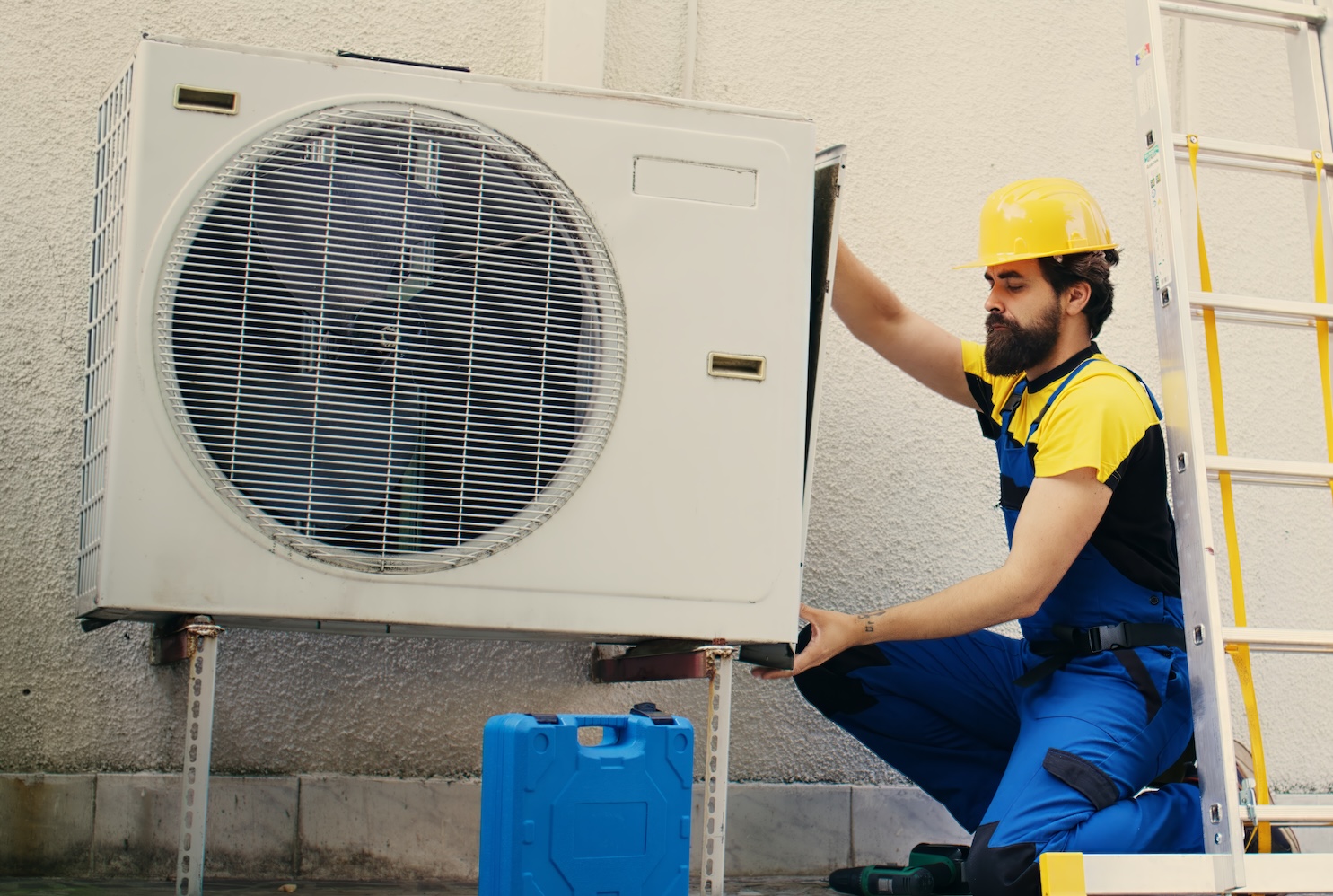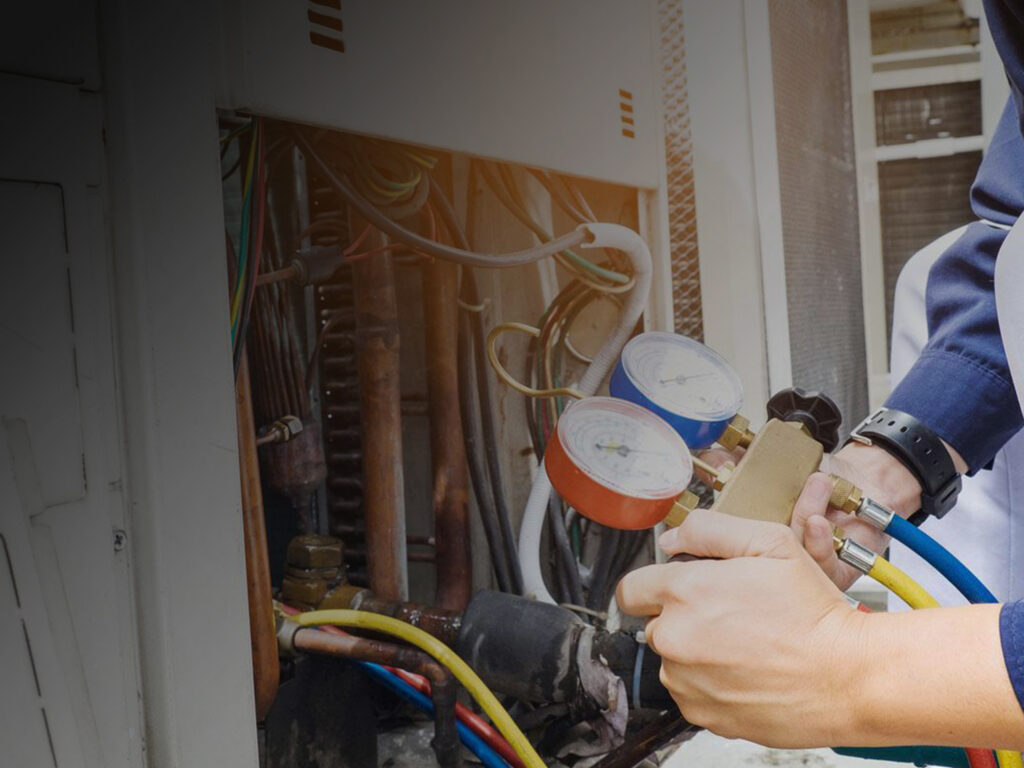Trusted Hvac Repair Services In Roseburg
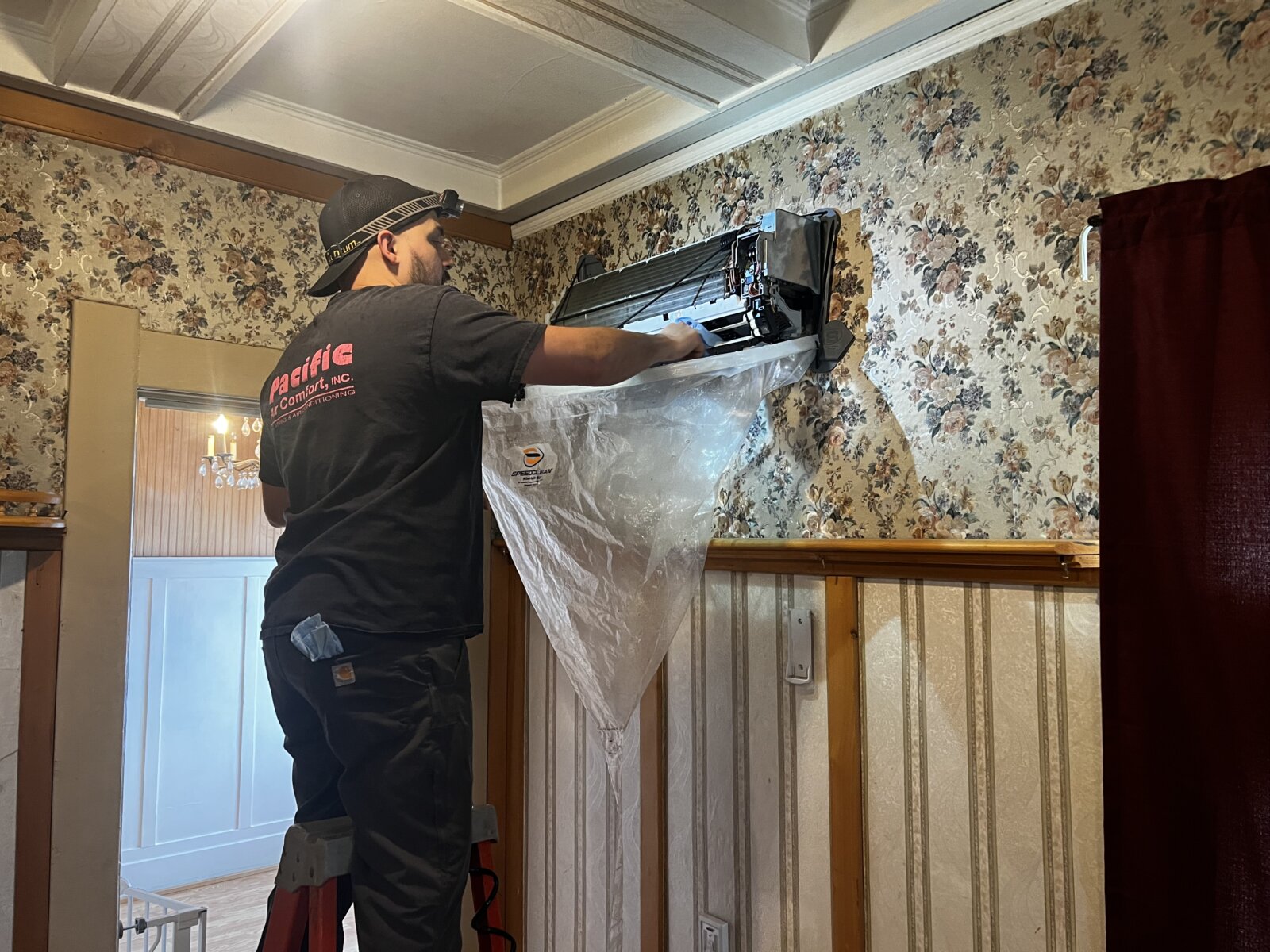
Few things are more frustrating than a malfunctioning air conditioner, especially during the summer months in Roseburg, Oregon. Before you immediately call a trusted HVAC repair service, let's walk through some basic troubleshooting steps you can take yourself. These steps are designed to identify simple issues and potentially save you time and money. Remember, safety always comes first. If you're uncomfortable with any of these steps, or if you suspect a more complex problem, don't hesitate to contact a qualified HVAC professional.
Common Air Conditioner Problems & Initial Checks
Before diving into troubleshooting, let's identify a common scenario: Your air conditioner is blowing warm air, or not blowing at all. This could stem from various issues, from a tripped breaker to a frozen evaporator coil. Here's where we start:
1. Power Supply Check
This is the most basic, yet often overlooked, step. Is your air conditioner actually receiving power?
- Check the Thermostat: Ensure it's set to "Cool" and the temperature is lower than the current room temperature. Sounds obvious, but it's a common mistake! Also, make sure the thermostat has working batteries. Replace them if needed.
- Inspect the Breaker: Locate your electrical panel (breaker box). Look for the breaker labeled "AC," "Air Conditioner," or something similar. Is it tripped (in the "off" or middle position)? If so, flip it completely to the "off" position and then back to the "on" position. If it trips again immediately, do not keep resetting it. This indicates a short circuit, and you'll need a professional.
- Examine the Disconnect Switch: Most outdoor AC units have a disconnect switch located near the unit. This is a safety device that allows you to cut power to the unit for maintenance. Make sure it's in the "on" position or the fuse is fine and not tripped.
2. Air Filter Inspection
A dirty air filter is a major culprit behind many AC problems. It restricts airflow, causing the unit to work harder, overheat, and potentially freeze up. A clean filter is vital for optimal performance and efficiency.
- Locate the Air Filter: This is usually located in the return air vent inside your home, or within the air handler itself. Common locations include walls, ceilings, or near the furnace.
- Inspect the Filter: Remove the filter and hold it up to the light. If you can barely see through it, it's dirty and needs to be replaced.
- Replace the Filter: Use a filter that's the correct size and type for your system. The size is usually printed on the filter frame. It's generally recommended to replace your air filter every 1-3 months, depending on usage and air quality.
3. Thermostat Settings Review
Double-check your thermostat settings to ensure they're appropriate for your needs. Incorrect settings can lead to inconsistent cooling or a completely inactive AC unit.
- Mode Setting: Verify that the thermostat is set to "Cool" and not "Heat," "Fan Only," or "Auto."
- Temperature Setting: Ensure the set temperature is lower than the current room temperature.
- Fan Setting: Experiment with the fan setting. "Auto" will only run the fan when the AC is actively cooling. "On" will run the fan continuously, which can improve air circulation but may also increase energy consumption.
- Programmable Thermostat: If you have a programmable thermostat, ensure that the schedule is set correctly and that there are no conflicting settings.
Troubleshooting Common Issues
Now that we've covered the basics, let's address some specific problems:
1. Air Conditioner Blowing Warm Air
If your AC is running but blowing warm air, here's what to check:
- Dirty Air Filter (Again!): As mentioned before, a clogged air filter is a frequent cause. Make sure yours is clean.
- Frozen Evaporator Coil: This is often caused by restricted airflow due to a dirty air filter. Turn off the AC and set the fan to "On" to help thaw the coil. Check the filter when the coil has thawed, and replace the filter. If the coil freezes up frequently, even with a clean filter, there may be a refrigerant leak, and you need professional help.
- Blocked Outdoor Unit: Ensure the outdoor unit is free from debris, such as leaves, grass clippings, and branches. These can obstruct airflow and reduce efficiency. Clear a 2-3 foot area around the unit.
- Refrigerant Leak: If you suspect a refrigerant leak (hissing sound, ice buildup, poor cooling performance), do not attempt to fix it yourself. Refrigerant handling requires specialized equipment and training. Contact a trusted HVAC repair service in Roseburg immediately.
- Condenser Fan Not Working: Check to see if the fan on your outdoor unit is spinning. If it is not, there may be a problem with the motor. This requires professional attention.
2. Air Conditioner Not Turning On
If your AC unit isn't turning on at all, consider these possibilities:
- Power Issues: Review the power supply checks mentioned earlier (breaker, disconnect switch).
- Thermostat Problems: Check the thermostat batteries and settings. Try replacing the thermostat batteries, even if the display appears to be working. If the thermostat has failed, it needs to be replaced by a professional.
- Capacitor Failure: The capacitor helps start the AC motor. A failed capacitor is a common issue and can prevent the unit from turning on. While you can visually inspect the capacitor for bulging or leaking (after disconnecting power to the unit), do not attempt to replace it yourself unless you have experience with electrical repairs. Capacitors can store a dangerous electrical charge even when disconnected from power.
- Motor Failure: The AC motor might have failed completely. This usually requires a professional diagnosis and replacement.
3. Air Conditioner Making Unusual Noises
Strange noises coming from your AC unit can indicate a variety of problems:
- Rattling: Could be loose debris inside the unit, a loose fan blade, or a failing motor bearing.
- Squealing: Often indicates a worn-out belt (in older units) or a failing motor bearing.
- Hissing: Could be a refrigerant leak. Contact a professional immediately.
- Humming: Could indicate a capacitor issue or a motor problem.
- Clicking: Could be a relay switch.
While you can try to identify the source of the noise, many of these issues require professional diagnosis and repair.
Simple DIY Fixes (With Caution!)
Here are a few simple fixes you can attempt yourself, but always prioritize safety:
- Cleaning the Outdoor Unit: Use a garden hose (with a gentle spray nozzle) to clean the outdoor unit coils. Do not use a pressure washer, as this can damage the coils.
- Replacing the Air Filter: As discussed earlier, this is a routine maintenance task that can significantly improve AC performance.
- Clearing Debris: Remove any leaves, grass clippings, or other debris from around the outdoor unit.
When to Call a Professional: Trusted HVAC Repair Services in Roseburg
While some AC problems can be resolved with simple DIY fixes, many require the expertise of a qualified HVAC technician. Here are some situations where you should always call a professional:
- Refrigerant Leaks: Handling refrigerant requires specialized equipment and training.
- Electrical Issues: Working with electricity can be dangerous. If you're not comfortable with electrical repairs, don't attempt them.
- Gas Leaks: If you suspect a gas leak, evacuate the premises immediately and call your gas company and 911.
- Complex Part Replacements: Replacing parts like capacitors, motors, compressors, or circuit boards requires specialized knowledge and tools.
- Persistent Problems: If you've tried the troubleshooting steps outlined above and your AC unit is still not working correctly, it's time to call a professional.
- Unusual Smells: If you notice a burning smell or any other unusual odor, turn off the unit and call a professional immediately.
Finding a trusted HVAC repair service in Roseburg is crucial for ensuring that your AC unit is properly diagnosed and repaired. Look for companies with:
- Licensed and Insured Technicians: This ensures that the technicians are properly trained and that you're protected in case of any accidents.
- Positive Reviews and Referrals: Check online reviews and ask friends or family for recommendations.
- Upfront Pricing: Get a clear estimate of the cost of repairs before work begins.
- Warranty on Repairs: A reputable company will stand behind its work and offer a warranty on parts and labor.
- Experience with Your Brand: Some technicians have more experience with specific brands and models of AC units.
- Emergency Service: See if a company offers emergency service outside of business hours.
By following these troubleshooting steps and knowing when to call a professional, you can keep your air conditioner running smoothly and comfortably all summer long in Roseburg. Remember, prevention is key. Regular maintenance, such as changing the air filter and cleaning the outdoor unit, can help prevent many common AC problems.
Disclaimer: This article provides general troubleshooting information and should not be considered a substitute for professional HVAC advice. Always prioritize safety and consult a qualified technician for any complex repairs.

